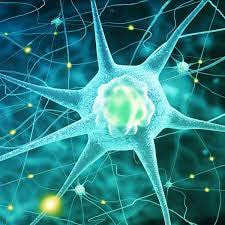
HORMONE REPORT
Steroid hormones are a group of hormones derived from cholesterol including progesterone, oestrogen, testosterone, DHEA, and cortisol (and their derivatives). They are involved in the regulation of many physiological processes in both men and women, such as the development and function of the reproductive system, metabolism, inflammation and immune system.
Steroid hormones are generally carried in the blood, bound to specific carrier proteins. Further metabolism and catabolism occurs in the liver, in other peripheral tissues, and in target tissues.
Symptoms of steroid hormone imbalance can affect men and women, and include: infertility, low libido and sex drive, low sperm count, acne, excess facial hair in women, PCOS, blood clots, mood swings, depression, substance misuse, poor memory, weight gain (belly fat for men), breast appearances in men, and hormone sensitive cancers, such as breast cancer or prostate cancer.
The Hormones test analyses genes involved in the regulation, synthesis, signalling, transport and metabolism of corticosteroids and sex steroids hormones. It looks at how gene variants affects hormones imbalance and details the nutrients and environmental factors that can influence and improve their balance. The Hormones report is recommended for men and women with hormone imbalance symptoms such as the ones listed above.
GENES INCLUDED
Steroid Hormones: AKR1C4, CYP17A1, GABRA2, HSD11B1, SRD5A2, SULT2A1
Oestrogen: COMT, CYP1A1, CYP1B1, CYP3A4, CYP19A1, ESR1, ESR2, MTHFR, NQO1
Detoxification: ABCB1, GSTM1, GSTP1, SULT1A1, SULT1E1, UGT1A1
HPA Axis: ADRB1, ADRB2, FKBP5, MTNR1B, OPRM1, TCF7L2
HPG Axis: ESR1, ESR2, FAAH
Steroid hormones are a group of hormones derived from cholesterol including progesterone, oestrogen, testosterone, DHEA, and cortisol (and their derivatives). They are involved in the regulation of many physiological processes in both men and women, such as the development and function of the reproductive system, metabolism, inflammation and immune system.
Steroid hormones are generally carried in the blood, bound to specific carrier proteins. Further metabolism and catabolism occurs in the liver, in other peripheral tissues, and in target tissues.
Symptoms of steroid hormone imbalance can affect men and women, and include: infertility, low libido and sex drive, low sperm count, acne, excess facial hair in women, PCOS, blood clots, mood swings, depression, substance misuse, poor memory, weight gain (belly fat for men), breast appearances in men, and hormone sensitive cancers, such as breast cancer or prostate cancer.
The Hormones test analyses genes involved in the regulation, synthesis, signalling, transport and metabolism of corticosteroids and sex steroids hormones. It looks at how gene variants affects hormones imbalance and details the nutrients and environmental factors that can influence and improve their balance. The Hormones report is recommended for men and women with hormone imbalance symptoms such as the ones listed above.
GENES INCLUDED
Steroid Hormones: AKR1C4, CYP17A1, GABRA2, HSD11B1, SRD5A2, SULT2A1
Oestrogen: COMT, CYP1A1, CYP1B1, CYP3A4, CYP19A1, ESR1, ESR2, MTHFR, NQO1
Detoxification: ABCB1, GSTM1, GSTP1, SULT1A1, SULT1E1, UGT1A1
HPA Axis: ADRB1, ADRB2, FKBP5, MTNR1B, OPRM1, TCF7L2
HPG Axis: ESR1, ESR2, FAAH